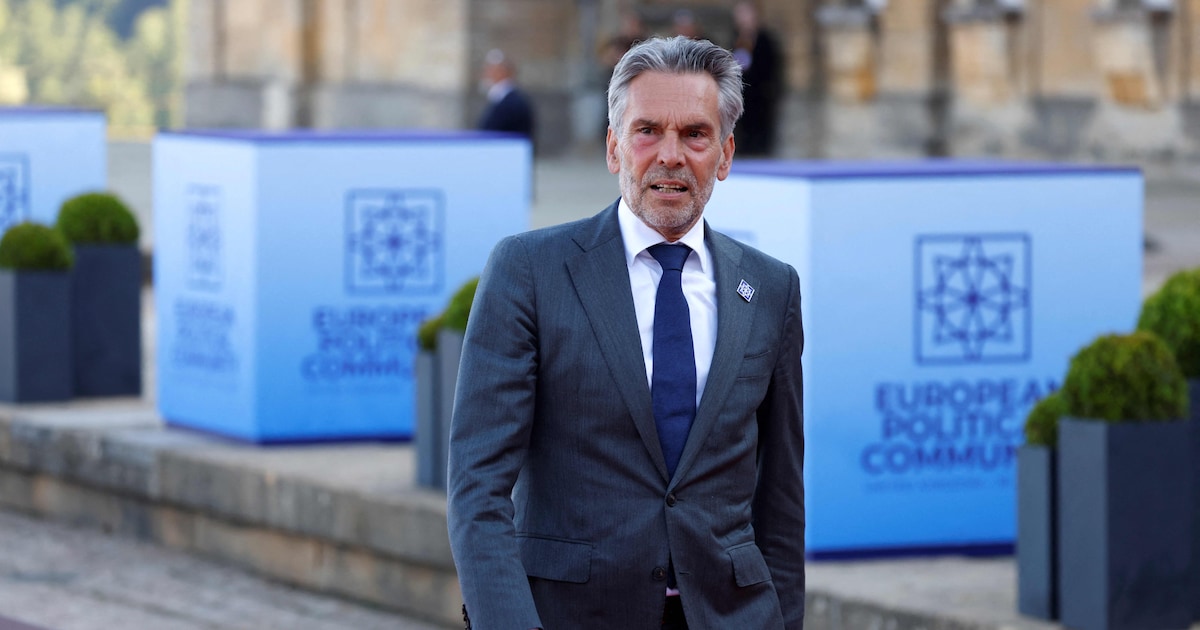
It was September 2011 and PVV leader Geert Wilders was standing at the interruption microphone in the House of Representatives. The day after Budget Day, parliament debated general political considerations, but in the meantime it was mainly about the statement by a PVV MP who had called the Turkish president an “Islamic monkey.” Unacceptable, thought Prime Minister Mark Rutte, to the dismay of PVV MP Wilders. “Act normal, man!” he hissed.
As Prime Minister, Rutte had decided not to respond to “every piece of red meat that the PVV throws into the arena”, but during his first cabinet he had to do so: the PVV was a tolerant partner of that cabinet, a complicated construction. This was certainly not always understood. “Let me state,” said PvdA leader Job Cohen during that debate in 2011, “that such a comment by Wilders immediately affects the cabinet.” SP member Emile Roemer put his finger on the sore spot: “Mr Wilders tolerates this cabinet, but for how long will this cabinet tolerate Mr Wilders?”
To boycott or not to boycott?
Thirteen years later, there is no tolerance anymore and the Schoof cabinet is now called extra-parliamentary – a possibly even more complex concept. But the fight with the PVV and front man Wilders seems to be repeating itself. This week, Prime Minister Schoof got a first taste of it. To begin with, the attitude towards Hungary. That country’s rotating EU presidency had only been in place for a few days when Prime Minister Viktor Orbán undertook a “peace mission” on his own to Russia and China, among others. The European Commission was furious and proposed an unprecedentedly harsh sanction: a boycott of the presidency.
What is the Netherlands doing? This consideration has caused dissent in the coalition. There, the VVD and NSC argue that the Netherlands should join the Commission’s boycott, while the BBB and PVV consider this to be nonsense. “We have no sympathy for the VVD’s folly,” said a PVV MP. The Telegraph.
That is why the Netherlands is not taking part in the boycott in advance, Schoof said. On Monday, Justice Minister David van Weel will simply travel to Budapest, the Hungarian capital, for an informal meeting with colleagues from other countries, at least those who are not taking part in the boycott.
PVV cabinet
The cabinet had to deal with Wilders even more directly this week, when the PVV leader posted a message on X in which he called Jordan “the only real Palestinian state.” In doing so, he suggested that the West Bank and Gaza Strip are not such; according to Wilders, they simply belong to Israel. This led to the first diplomatic row since the cabinet took office; even the Dutch ambassador to Jordan was summoned.
Foreign Minister Caspar Veldkamp also felt called upon to explain: Just as in 2010, this extra-parliamentary programme cabinet is seen abroad primarily as a PVV cabinet. Veldkamp emphasised that Wilders’ tweet is not a cabinet policy and that the Netherlands continues to “support the two-state solution”. “As a member of the House of Representatives, Mr Wilders is free to have his own views, but the cabinet has different views,” said Veldkamp.
The new normal
Already in the first month, the Schoof cabinet was very busy with the management of the PVV crisis. In the debate on the government statement, Schoof was already personally attacked by Wilders, after a provocative tweet by the minister and PVV veteran Fleur Agema even made the cabinet hesitate for a moment. These storms had not yet subsided when the problems surrounding Hungary and Jordan emerged, also with leading roles for PVV members.
It seems to be a harbinger of the new normal. However, no one can blame Wilders for not being clear about this. The PVV leader won the election with flying colours, but was still not allowed to become prime minister and remained in parliament. In that capacity, he does exactly what he promised to do: propagate the pure PVV sound. “That is the result,” Wilders recently told his parliamentary colleagues. “Many people will regret not having been prime minister.”
Listen also:
The surprising debut of the Schoof cabinet
Loading video…
Read also:
Caspar Veldkamp: ‘When I say I’m the new minister, people say: your country is doing important things’
The new Foreign Minister Caspar Veldkamp wants to take an even more critical look at EU enlargement. In Washington he talks to Trouw about his first experiences.



